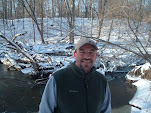“You teach best what you need to learn.” – Richard BachI recently presented a short program to a local service club on the disconnection that our society has from its food. I try to outline some of the reasons that I feel have led to the misinformation that is contributing to a certain amount of fear about food. The three major reasons I touch on are: the migration away from the farm by our country's citizens; the phenomenal speed that information travels to people via the internet; and the growth of forums like Facebook and You Tube that are not necessarily reliable or factual sources, but are regardless believed.
After the presentation as I was tearing down my Power Point equipment, a young man of middle school age came up to me and explained that he enjoyed hearing how the majority of Michigan’s farmers are environmentally conscious. He then went on to explain that he had a teacher that was espousing the opposite viewpoint. The teacher told of how modern farm practices were destroying the land and fouling the waters surrounding them.
Now this young man came from a farming background and was at this meeting with his uncle, a farmer. I could only imagine what he must have felt like in that classroom, hearing a teacher accuse him and his relatives of atrocities he knew were untrue. Untrue because he knew what went on at his family farm. What a difficult position to be in as a student. How could he speak up and try to dispel what he must have known was not true and risk the wrath of the teacher, the person who holds his grades and academic advancement in the palm of his obviously biased hands? The teachers hands may have held books on the subjects he taught, and his brain may absorb the words of those books, but could they understand the hands and knowledge of a farmer? Or worse yet, would this young man be painted as a villain to the environment to classmates that bought into the teachers viewpoint? Talk about a uncomfortable position to put a teen in.
I could only assure him that friends of farmers were working very diligently to try to get a true and factual representation out to the public about what it means to have a job with a responsibility to feed an ever-increasingly hungry world.
And I grumbled to myself, remembering that some teachers are out there educating by telling students what to think, rather than helping them develop the power to think and form ideas with their own mind.
If you want to build a ship, don't drum up people to collect wood and don't assign them tasks and work, but rather teach them to long for the endless immensity of the sea. –Antoine de Saint-Exupery







